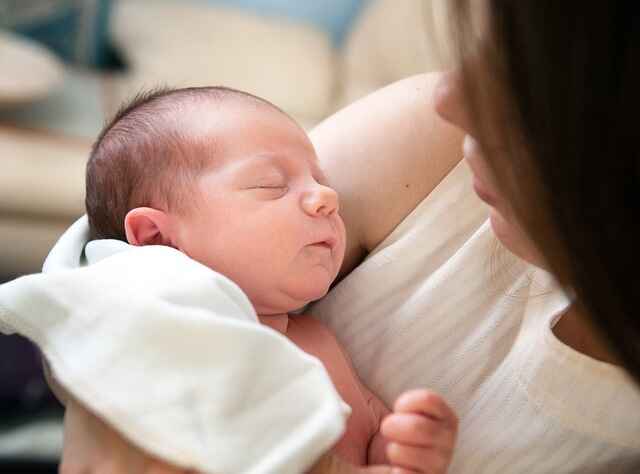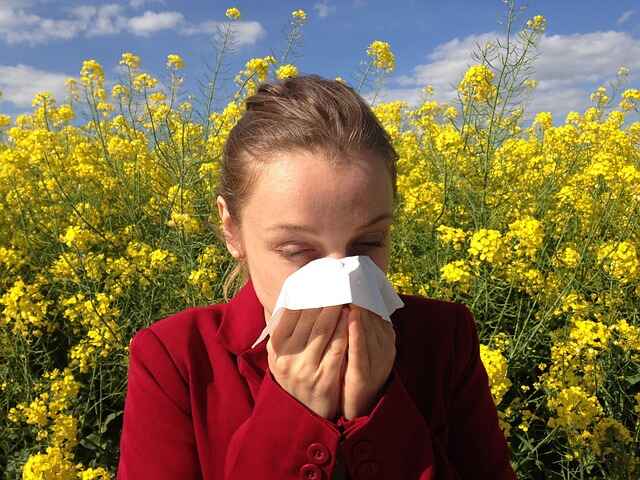Allergies during pregnancy – This is a huge topic of concern and so we try to answer almost every question that is going in your mind.
Can You Get Allergies During Pregnancy?
Yes, allergies can develop during pregnancy, sometimes for the first time and undoubtedly if you have a history.
Pregnant women frequently have allergies, but not all of them are chronic allergies. Many pregnant women who had no prior allergies at all may also complain about allergy symptoms during pregnancy.
How Allergies Can Affect Your Pregnancy And Baby?
To start with, even if you have some sort of allergy or a history of allergies, you can have a safe, healthy pregnancy.
If you are concerned about your baby and want to limit any risk, inform your doctor about your symptoms. Also, if you are taking medicines for allergies, do consult with your doctor. The reason is, not every medicine can be taken during pregnancy.

Additionally, whenever feasible, do your best to avoid known allergy triggers (tricky, yes, especially when the culprit is pollen or grass at the height of allergy season).
Also Read: What is Condensed Milk? Know the Health Advantages and Disadvantages
Are Allergies Worse When You’re Pregnant?
About one-third of fortunate expectant allergy sufferers see a brief relief from their symptoms during pregnancy, another one-third experience a worsening of their symptoms, and the final one-third experience symptoms that are roughly the same.
Symptoms Of Allergies During Pregnancy
You’ll probably experience the following signs and symptoms if you have an allergy like hay fever (rhinitis):
- Congestion
- Sneezing
- Headache
- Runny nose
- Itchy eyes, skin and/or mouth
Early in the spring, later in the summer, or in the early fall, hay fever frequently gets worse, but because it depends on the precise environmental allergens that are generating your sensitivity, it doesn’t always occur on a regular timetable.
At different (or all) times of the year, other triggers including mould, dust, and pet dander can produce allergy reactions.

Allergies vs. Nasal Congestion During Pregnancy
Unfortunately, expectant nostrils tend to be congested. This is due to the increased levels of oestrogen and progesterone, which boost blood flow throughout your body, including in your nose, causing mucus membranes to enlarge and soften.
Nasal congestion typically begins midway through the second trimester. Other symptoms like sneezing, itchy eyes, stuffiness and coughing, are likely to occur if you have allergies.
Can You Take Allergy Medications When Pregnant?
To find out which medications you can safely take while pregnant, consult your doctor. That holds true even if you already frequently took prescription, over-the-counter, or homoeopathic drugs.
Never use any of these again unless you have received permission from a professional, who should always have the last word on any allergy therapies you employ.
However, there are some general guidelines for using allergy drugs while pregnant:
Be sure to speak with your doctor before using antihistamines if you’re expecting. The most typical prescription is for Benadryl (diphenhydramine).
Pregnant women should avoid taking regular decongestants with the components pseudoephedrine or phenylephrine, especially in the first trimester (such as Sudafed, Claritin-D, and DayQuil).
Steroid nasal sprays are typically regarded as safe for expectant mothers, but consult your doctor about brand and dosage. Nasal strips and saline sprays are also acceptable.
Can You Get Allergy Shots During Pregnancy?
It is not recommended to start allergy shots for the first time during pregnancy. However, if you have already taken a dose earlier and didn’t develop any reactions, you might continue. (Source). It is always best to consult an allergist.
How To Prevent Allergies During Pregnancy
Considering other options rather than medications to treat your allergies while pregnant? Well, try these tips and tricks to prevent or lessen allergy symptoms:
- Stay away from people who are smoking. Smoking can exacerbate allergies, and being around secondhand smoke while pregnant is harmful to both you and your unborn child.
- If you’re allergic to pollen: Try to remain indoors where the air is filtered and air-conditioned. If you must venture outside, consider donning wraparound shades to protect your eyes from pollen.
- If you’re allergic to dust: An alternative to the conventional feather duster is a microfiber cloth. Additionally, try to avoid basements, attics, and other musty areas.
Food Allergies During Pregnancy
Are you allergic to a certain food but your pregnancy needs you to have them? Well, you need to tell your doctor in advance. Also, consult a dietician and nutritionist so that they can make a proper diet plan based on your requirement as well as your allergy. Besides, make sure you consume and buy only those items from the market that clearly states the ingredients on their label (which of course comes without the food that you are allergic of). Make sure you also be clear in your communication while eating at a friend’s place or at a restaurant.
Also Read: Health Benefits Of Peanuts: Nutrients, Precautions & Side Effects





